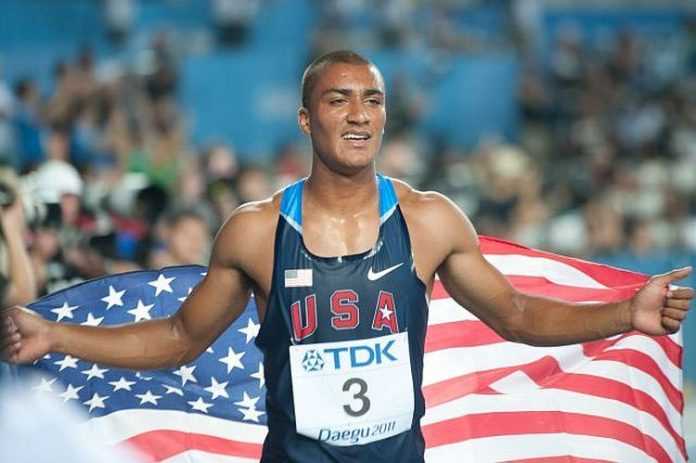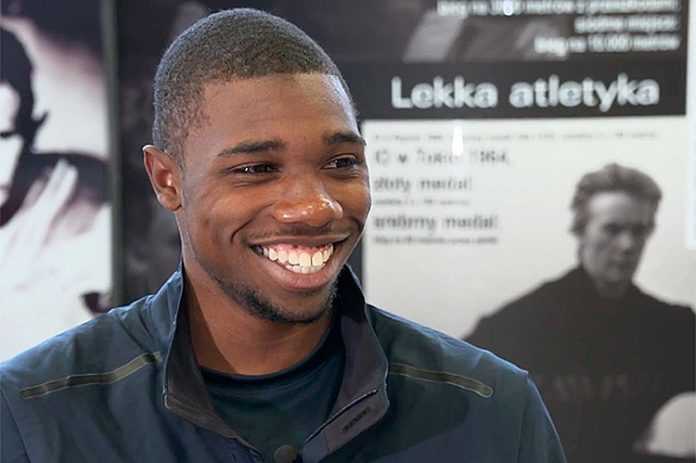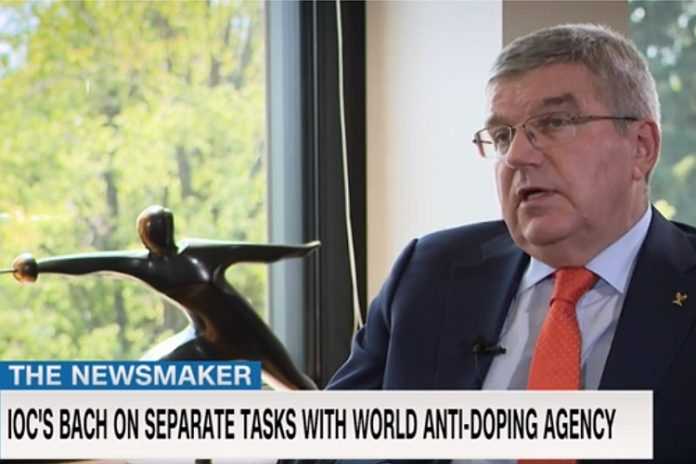If you’re a gold medalist, you’re sure to draw a lot of attention; you’re the one everyone wants to beat.
Germany’s Sebastian Brendel and Hungary’s Danuta Kozak weren’t worried about it. They won anyway.
At the ICF World Sprint Championships in Montemor-a-Velho (POR), Brendel was busy, winning his fourth straight World Championship in the C-1/1,000 m, then the C-1/5,000 m and a silver in the C-1/500 m. The two wins gave him 10 career world titles.
Kozak, coming back after winning three gold medals in Rio – she’s won five all together – and skipping the 2017 Worlds, won the K-1/500 m, the K-2/500 m with Anna Karasz and as part of the K-4/500 m for three golds this year as well. She now owns 14 World Championships gold medals.
There were other stars in Portugal as well:
∙ None were more popular that Portugal’s Fernando Pimenta, who won the men’s K-1/1,000 m and 5,000 m (defending his title in the 5,000 m);
∙ Brazil’s Isaquias dos Santos won the C-1/200 m and the C-2/500 m with Erion Silva;
∙ Canada’s Laurence Vincent-Lapointe was mighty impressive in defending her C-1/200 m title, winning the C-1/5,000 m and winning the C-2/500 m with Katie Vincent (the pair defended their World title in the C-2);
∙ Hungary’s Dora Bodonyi won the K-1/1,000 m and was on the winning K-4/500 m for two golds.
Josef Dostal (CZE) defended his title in the K-1/500 m and Germany’s Yul Oeltze and Peter Kretschmer again won the men’s C-2/1,000 m.
New Zealand star Lisa Carrington, a seven-time World Champion, was also being watched closely in her four events, but ran into Kozak and friends in the K-1/500 m, the K-2/500 m (with Caitlin Ryan) and K-4/500 m, but defended her 2017 title in the K-1/200 m for one gold and three silvers.
Germany led the overall medal count with 13 (7-4-2), trailed by Russia (11: 3-3-5) and Hungary, which won nine (6-1-2). Summaries:
ICF World Sprint Championships
Montemor-o-Velho (POR) ~ 23-26 August 2018
(Full results here)
Men
C-1/200 m: 1. Artsem Kozyr (BLR), 39.810; 2. Ivan Shytl (RUS), 39.970; 3. Henrikas Zustautas (LTU), 40.043; 4. Zasa Nadiradze (GEO), 40.226; 5. Stefan Kiraj (GER), 40.410; 6. Helder Silva (POR), 40.503; 7. Alberto Pedrero (ESP), 40.826; 8. Oleh Borovyk (UKR), 41.306.
C-1/500 m: 1. Isaquias dos Santos (BRA), 1:49.203; 2. Sebastian Brendel (GER), 1:49.496; 3. Martin Fuksa (CZE), 1:50.143; 4. Oleg Tarnovschi (MDA), 1:51.577; 5. Maksim Piatrou (BLR), 1:51.823; 6. Tomasz Kaczor (POL), 1:52.643; 7. Mikhail Pavlov (RUS), 1:52.743; 8. Tamas Kiss (HUN), 1:56.217.
C-1/1,000 m: 1. Brendel (GER), 3:48.390; 2. Fuksa (CZE), 3:49.625; 3. Dos Santos (BRA), 3:50.190; 4. Kirill Shamshurin (RUS), 3:53.300; 5. Oleg Tarnovschi (MDA), 3:53.665; 6. Adrien Bart (FRA), 3:54.221; 7. Andras Bodonyi (HUN), 3:54.496; 8. Carlo Tacchini (ITA), 3:58.826.
C-1/5,000 m: 1. Brendel (GER), 23:40.857; 2. Fernando Enrique (CUB), 23:46.646; 3. Kirill Shamshurin (RUS), 24:09.504; 4. Mateusz Kaminski (POL), 24:25.916; 5. Carlo Tacchini (ITA), 24:31.263; 6. Manuel Campos (ESP), 24:32.367; 7. Thomas Simart (FRA), 25:02.871; 8. Aivis Tints (LAT), 25:04.850.
C-2/200 m: 1. Hleb Saladukha/Dzianis Makhlai (BLR), 37.646; 2. Arsen Sliwinski/Michal Lubniewski (POL), 37.816; 3. Alexander Kovalenko/Ivan Shytl (RUS), 37.993; 4. Antoni Segura/Alfonso Benavides (ESP), 39.396; 5. Jonatan Hajdu/Adam Fekete (HUN), 39.026; 6. Vitaliy Vergeles/Denys Kamerylov (UKR), 39.130; 7. Gheorghe Stoian/Constantin Diba (ROU), 41.323; 8. Aoto Yabu/Masato Hashimoto (JPN), 42.093.
C-2/500 m: 1. Erion Silva/Isaquias dos Santos (BRA), 1:40.043; 2. Viktor Melantev/Vladislav Chebotar (RUS), 1:41.590; 3. Arsen Sliwinski/Michal Lubniewski (POL), 1:41.787; 4. Sergio Vallejo/Adrian Sierio (ESP), 1:41.830; 5. Yul Oeltze/Peter Kretschmer (GER), 1:41.997; 6. Jonatan Hajdu/Adam Fekete (HUN), 1:42.047; 7. Leonid Carp/Victor Mihalachi (ROU), 1:42.650; 8. Dmytro Ianchuk/Taras Mishchuk (UKR), 1:43.300.
C-2/1,000 m: 1. Yul Oeltze/Peter Kretschmer (GER), 3:38.207; 2. Serguey Madrigal/Fernando Enrique (CUB), 3:39.462; 3. Kirill Shamshurin/Ilya Pervukhin (RUS), 3:40.647; 4. Mateusz Kaminski/Vincent Slominski (POL), 3:42.217; 5. Daniele Santini/Luca Incollingo (ITA), 3:42.77; 6. Thomas Simart/Adrien Bart (FRA); 7. Filip Dvorak/Tomas Janda (CZE), 3:45.837; 8. Sergio Vallejo/Adrian Sierio(ESP), 3:46.042.
C-4/500 m: 1. Russia (Petrov, Melantev, Pavlov, Shytl), 1:35.606; 2. Ukraine, 1:36.726; 3. Italy, 1:37.196; 4. Germany, 1:37.290; 5. Romania, 1:37.700; 6. Belarus, 1:38.640; 7. Poland, 1:39.276; 8. Hungary, 1:39.676.
K-1/200 m: 1. Carlos Garrote (ESP), 35.259; 2. Arturas Seja (LTU), 35.366; 3. Evgenii Lukantsov (RUS), 35.512; 4. Balazs Birkas (HUN), 35.576; 5. Aleksejs Rumjancevs (LAT), 35.706; 6. Marko Dragosavljevic (SRB), 35.806; 7. Pawel Kaczmarek (POL), 35.932; 8. Manfredi Rizza (ITA), 36.116.
K-1/500 m: 1. Josef Dostal (CZE), 1:37.905; 2. Tom Liebscher (GER), 1:38.912; 3. Bence Nadas (HUN), 1:39.516; 4. Joao Ribeiro (HUN), 1:39.739; 5. Oleh Kukharyk (UKR), 1:40.659; 6. Roman Anoshkin (RUS), 1:41.306; 7. Etienne Hubert (FRA), 1:41.592; 8. Thomas Green (AUS), 1:42.116.
K-1/1,000 m: 1. Fernando Pimenta (POR), 3:27.666; 2. Max Rendschmidt (GER), 3:28.391; 3. Josef Dostal (CZE), 3:29.177; 4. Balint Kopasz (HUN), 3:29.917; 5. Roi Rodriguez (ESP), 3:31.677; 6. Bartosz Stabno (POL), 3:32.007; 7. Roman Anoshkin (RUS), 3:32.60-2; 8. Rene Poulsen (DEN), 3:32.667.
K-1/5,000 m: 1. Fernando Pimenta (POR), 21:42.196; 2. Rene Poulsen (DEN), 21:43.723; 3. Eivind Vold (NOR), 21:44.849; 4. Javier Hernanz (ESP), 2:46.565; 5. Balint Noe (HUN), 22:07.107; 6. Agustin Vernice (ARG), 22:16.203; 7. Fabio Wyss (SUI), 22:18.170; 8. Artuur Peters (BEL), 22:26.151.
K-2/200 m: 1. Mark Balaska/Balazs Birkas (HUN), 31.873; 2. Saul Craviotto/Cristian Toro (ESP), 32.133; 3. Nebojsa Grujic/Marko Novakovic (SRB), 32.156; 4. Kirill Lyapunov/Alexander Dyachenko (RUS), 32.233; 5. Piotr Mazur/Pawel Kaczmarek (POL), 32.753; 6. Edvinas Ramanauskas/Ignas Navkauskas (LTU), 32.790; 7. Riccardo Spotti/Andrea Di Liberto (ITA), 32.823; 8. Filip Svab/Ondrej Bisicky (CZE), 33.136.
K-2/500 m: 1. Artem Kuzakhmetov/Vladislav Blintcov (RUS), 1:30.666; 2. Stefan Vekic/Vladimir Torubarov (SRB), 1:30.953; 3. Ricardas Nekriosius/Andrej Olijnik (LTU), 1:31.449; 4. Cyrille Carre/Francis Mouget (FRA), 1:31.786; 5. Erik Vlcek/Juraj Tarr (SVK), 1:31.886; 6. David Toth/Tamas Kulifai (HUN), 1:32.243; 7. Albert Marti/Juan Oriyes (ESP), 1:33.469; 8. Saeid Fazloula/Kostja Stroinski (GER), 1:33.606.
K-2/1,000 m: 1. Max Hoff/Marcus Gross (GER), 3:15.797; 2. Francisco Cubelos/Inigo Pena (ESP), 3:16.617; 3. Marko Tomicevic/Milenko Zoric (SRB), 3:17.407; 4. Riley Fitzsimmons/Jordan Wood (AUS), 3:17.432; 5. Rene Poulsen/Morten Graversen (DEN), 3:20.228; 6. Peter Gelle/Adam Botek (SVK), 3:20.843; 7. Maxime Beaumont/Guillaume Burger (FRA), 3:21.113; 8. Pavel Miadzvedzeu/Aleh Turenia (BLR), 3:22.143.
K-4/500 m: 1. Germany (Rendschmidt, Liebscher, Rauhe, Lemke), 1:20.056; 2. Spain, 1:20.423; 3. Hungary, 1:21.480; 4. Australia, 1:21.780; 5. Russia, 1:22.006; 6. France, 1:22.530; 7. Slovakia, 1:22.596; 8. Czech Republic, 1:23.050.
K-4/1,000 m: 1. Germany (Gecso, Thordsen, Schopf, Reuschenbach), 2:57.947; 2. Slovakia, 2:58.914; 3. Spain, 2:59.341; 4. Russia, 2:59.981; 5. Belarus, 3:01.801; 6. Hungary, 3:02.821; 7. Bulgaria, 3:04.468; 8. Portugal, 3:11.665.
Women
C-1/200 m: 1. Laurence Vincent-Lapointe (CAN), 45.567; 2. Olesia Romasenko (RUS), 46.242; 3. tie, Dorota Borowska (POL) and Alena Nazdrova (BLR) 46.812; 5. Virag Balla (HUN), 46.972; 6. Luqi Zhang (CHN), 47.232; 7. Staniliya Stamenova (BUL), 47.282; 8. Nikolina Mijuskovic (SRB), 48.087.
C-1/500 m: 1. Kseniia Kurach (RUS), 2:10.991; 2. Alena Nazdrova (BLR), 2:11.631; 3. Katie Vincent (CAN), 2:12.148; 4. Shixiao Xu (CHN), 2:12.875; 5. Zsanett Lakatos (HUN), 2:19.448; 6. Liudmyla Luzan (UKR), 2:21.115; 7. Magda Stanny (POL), 2:22.118; 8. Mariami Kerdikashvili (GEO), 2:24.365.
C-1/5,000 m: 1. Laurence Vincent-Lapointe (CAN), 27:43.020; 2. Annika Loske (GER), 27:52.541; 3. Maria Mailliard (CHI), 27:59.547; 4. Volha Klimava (BLR), 28:11.793; 5. Shixiao Xu (CHN), 28:42.314; 6. Zsanett Lakatos (HUN), 28:59.046; 7. Maria Corbera (ESP), 29:04.735; 8. Lucia Valova (SVK), 29:36.998.
C-2/200 m: 1. Alena Nazdrova/Kamila Bobr (BLR), 45.234; 2. Sylwia Szczerbinska/Dorota Borowska (POL), 46.158; 3. Kseniia Kurach/Olesya Nikiforova (RUS), 46.668; 4. Nadya Crossman-Serb/Hannah MacIntosh (CAN), 47.185; 5. Qi Li/Yajue Zhan (CHN), 48.131; 6. Blanka Nagy/Csenge Molnar (HUN), 48.185; 7. Maria Perez/Antia Jacome (ESP), 48.358; 8. Maria Olarasu/Daniela Cociu (MDA), 49.118.
C-2/500 m: 1. Laurence Vincent-Lapointe/Katie Vincent (CAN), 1:56.395; 2. Virag Balla/Kincso Takacs (HUN), 1:58.632; 3. Nadzeya Makarchanka/Volha Klamava (BLR), 2:00.485; 4. Irina Andreeva/Olesia Romasenko (RUS), 2:02.279; 5. Shixiao Xu/Zheyi Xu (CHN), 2:02.579; 6. Lisa Jahn/Sophie Koch (GER), 2:03.352; 7. Eugenie Dorange/Flore Caupain (FRA), 2:04.912; 8. Liudmyla Luzan/Anastasiia Chetverikova (UKR), 2:04.935.
K-1/200 m: 1. Lisa Carrington (NZL), 38.821; 2. Emma Jorgensen (DEN), 40.548; 3. Linnea Stensils (SWE), 40.585; 4. Marta Walczykiewicz (POL), 40.685; 5. Jessica Walker (GBR), 40.728; 6. Ivana Mladkova (SVK), 40.745; 7. Sarah Guyot (FRA), 40.795; 8. Teresa Portela (ESP), 40.978.
K-1/500 m: 1. Danuta Kozak (HUN), 1:47.254; 2. Lisa Carrington (NZL), 1:47.984; 3. Volha Khudzenka (BLR), 1:48.724; 4. Anna Pulawska (POL), 1:49.614; 5. Elena Aniushina (RUS), 1:50.759; 6. Linnea Stensils (SWE), 1:51.034; 7. Alyce Burnett (SWE), 1:51.034; 8. Milica Starovic (SRB), 1:52.199.
K-1/1,000 m: 1. Dora Bodonyi (HUN), 4:02.892; 2. Lizzie Broughton (GBR), 4:03.927; 3. Bridgitte Hartley (RSA), 4:04.017; 4. Nina Krankemann (GER), 4:04.662; 5. Anastasia Panchenko (RUS), 4:09.423; 6. Inna Hryshchun (UKR), 4:12.313; 7. Alyssa Bull (AUS), 4:12.333; 8. Netta Malinen (FIN), 4:16.348.
K-1/5,000 m: 1. Lizzie Broughton (GBR), 24:01.377; 2. Maryna Litvinchuk (BLR), 24:12.014; 3. Jennifer Egan (IRL), 24:15.075; 4. Caitlin Ryan (NZL), 24:25.572; 5. Tamara Takacs (HUN), 24:27.214; 6. Emma Jorgensen (DEN), 24:36.180; 7. Kristina Bedec (SRB), 24:37.829; 8. Bridgette Hartley (RSA), 24:42.207.
K-2/200 m: 1. Franziska Weber/Tina Dietze (GER), 37.157; 2. Kayla Imree/Aimee Fisher (NZL), 37.197; 3. Mariia Kichasova-Skoryk/Anastasiya Horlova (UKR), 37.294; 4. Reka Hagymasi/Agnes Szabo (HUN), 37.411; 5. Karolina Markiewicz/Helena Wisniewska (POL), 37.437; 6. Natalia Podolskaia/Vera Sobetova (RUS), 37.631; 7. Marharyta Makhneva/Maryna Litvinchuk (BLR), 37.794; 8. Jamie Roberts/Jo Bridgen-Jones (AUS), 37.844.
K-2/500 m: 1. Anna Karasz/Danuta Kozak (HUN), 1:43.065; 2. Lisa Carrington/Caitlin Ryan (NZL), 1:43.088; 3. Jasmin Fritz/Steffi Kriegerstein (GER), 1:45.589; 4. Manon Hostens/Sarah Guyot (FRA), 1:45.682; 5. Justyna Iskrzucka/Paulina Paszek (POL), 1:46.832; 6. Mariya Povkh/Liudmyla Kuklinovska (UKR), 1:47.902; 7. Ana Lehaci/Viktoria Schwarz (AUT), 1:48.272; 8. Teresa Portela/Joana Vasconcelos (POR), 1:49.665.
K-2/1,000 m: 1. Tamara Csipes-Galbacs/Erika Medveczky (HUN), 3:39.811; 2. Justyna Iskrzycka/Paulina Paszek (POL), 3:43.758; 3. Sarah Brussler/Melanie Gebhardt (GER), 3:45.091; 4. Kira Stepanova/Svetlana Chernigovskaya (RUS), 3:48.595; 5. Roxana Cuir/Elena Meroniac (ROU), 3:52.695; 6. Penille Knudsen/Julia Funch (DEN), 3:53.035; 7. Natalie Davison/alanna Bray-Lougheed (CAN), 3:53.218; 7. Barbara Padro/Estefania Fernandez (ESP), 3:55.402; 8. Sara Sotero/Rita Fernandes (POR), 4:02.432.
K-4/500 m: 1. Hungary (Karasz, Medveczyk, Kozak, Bodonyi), 1:33.761; 2. New Zealand, 1:33.771; 3. Poland, 1:34.568; 4. Belarus, 1:34.885; 5. Germany, 1:36.298; 6. Ukraine, 1:36.515; 7. Australia, 1:37.385; 8. Denmark, 1:39.245.























 The 18th Asian Games in Indonesia still has a week to go, but it will take a stunning turn to keep Japan’s teenage swim star, Rikako Ikee, from being the star of the event.
The 18th Asian Games in Indonesia still has a week to go, but it will take a stunning turn to keep Japan’s teenage swim star, Rikako Ikee, from being the star of the event.




